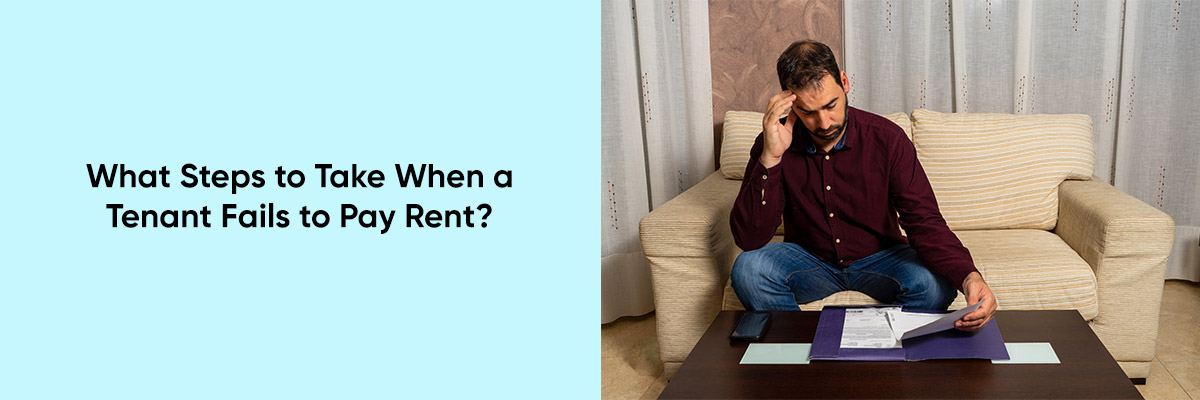As a property owner or manager, you aim to have tenants who respect the property, adhere to rules and regulations, maintain the property as if it were their own, and pay their rent punctually. However, this ideal situation doesn’t always materialize. Sometimes, tenants fail to pay their rent on time or repeatedly break their payment commitments.
In this blog, we will explore the steps you can take when faced with such situations, offering guidance on handling tenants who consistently fail to meet their rental obligations or repeatedly violate the rent agreement.



What Steps to Take When a Tenant Fails to Pay Rent?
Example Scenario: Tenant’s Failure to Pay Rent
Let’s consider a scenario involving a tenant in a HUD multifamily property. Michael Smith, who resides in a two-bedroom apartment in a HUD property located in Phoenix, Arizona, has missed his rent payments for the months of April and May. Despite repeated reminders, Michael has failed to pay the overdue rent of $1,200 for each of these months. When the property manager, Riya Michaelson, approached Michael to discuss the outstanding payments, he provided vague responses without a clear plan for settling the overdue rent.
As a property owner or manager facing a similar situation, you may wonder how to address the issue effectively while ensuring compliance with federal and state regulations. Here are the steps you can take:
1. Review Lease Agreement and Communication Records
- Step: Begin by reviewing the lease agreement to understand the terms regarding rent payments and late fees. Check your communication records to ensure that Michael has been properly notified of his missed payments and any associated fees.
- Why: This helps confirm that you have adhered to all procedures outlined in the lease and that you have documented evidence of the tenant’s non-compliance.
2. Issue a Formal Notice of Late Rent
- Step: Send a formal notice to Michael, such as a “Pay or Quit” notice, specifying the amount due, including any late fees, and a deadline by which the payment must be made. In Arizona, this notice must give the tenant at least 5 days to pay the rent or vacate the property.
- Why: A formal notice is a legal requirement and serves as a clear demand for payment, providing Michael with a final opportunity to settle his arrears.
3. Explore Payment Plans or Negotiations
- Step: If Michael responds to the formal notice, consider negotiating a payment plan that allows him to pay the overdue rent in installments. Ensure that any agreement is documented in writing.
- Why: Offering a payment plan can sometimes resolve the issue without legal action, while documentation provides a clear record of the agreed terms.
4. Review Federal and State Laws
- Step: Familiarize yourself with federal and state laws governing tenant rights and eviction procedures. In Arizona, landlords must follow specific procedures for eviction under the Residential Landlord and Tenant Act.
- Why: Understanding these laws ensures that you act within legal boundaries and respect tenant rights throughout the process.
5. Initiate Eviction Proceedings if Necessary
- Step: If Michael does not comply with the notice or payment plan, you may need to initiate eviction proceedings. File a complaint with the local court, and follow the legal process for eviction.
- Why: Eviction is a legal remedy for dealing with tenants who consistently fail to pay rent and do not respond to other attempts at resolution.
6. Seek Legal Advice
- Step: Consult with a legal professional who specializes in landlord-tenant law to ensure all steps are taken correctly and to receive guidance tailored to your situation.
- Why: Legal advice can help navigate complex issues and avoid potential pitfalls during the eviction process.
Conclusion
Addressing tenant non-payment requires a structured approach. Start by reviewing the lease and communication records, then issue a formal notice of late rent. Explore payment plans if possible, and familiarize yourself with federal and state laws. If necessary, proceed with eviction and consult a legal expert to navigate the process effectively.
By following these steps, you ensure compliance with regulations and manage rent arrears professionally, maintaining a positive landlord-tenant relationship.


